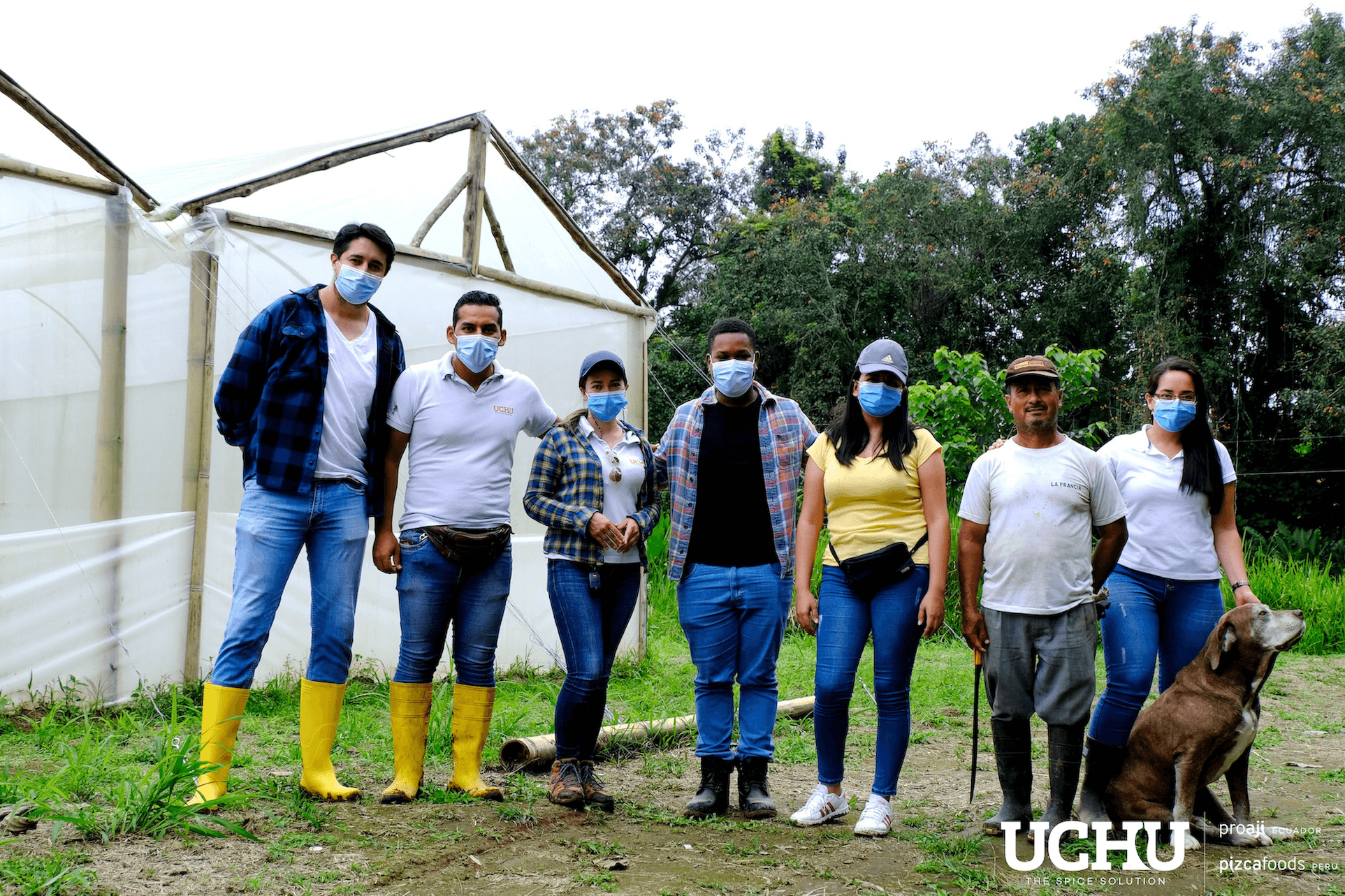Fields and farmers: UCHU’s way to sustainability
“We started with a 10% farmer retention rate two years ago and now we are at 50%, a pretty great thing for our team to accomplish.” Paul Vallejo - Head of Agriculture
At UCHU, we believe that what is best for people and the planet is also what is best for our business. We understand that sustainability is a priority, now more than ever, within any industry. That is why we keep working to improve our practices along our supply chain.
In our company, it all starts with the land: small farmers are the main stakeholders from the beginning of our processes, so we designed our operations to give them a leg up. We have built a strong team of agronomists who are in charge of ensuring that all our practices protect, improve, and regenerate their fields. Supporting farmers through this education, community well-being, and other fair practices, we aim to make a positive impact on our planet.
“Many of the practices we use with our farmers are replicated by them in other kinds of crops as they learn the importance of taking care of their land.” Paul Vallejo - Head of Agriculture
Our Practices
As much as we work towards productivity, we understand that without sustainability, everything is short-lived.
A key part of our integration between regeneration and productivity is supporting our farmers with technical guidelines. Our agricultural team handles the technical support of our farmers in Peru and Ecuador with education both on-site and beyond.
To keep track of all our activities, we rely on innovation and technology. By using the SaaS-based Agtech tool Cropin, our team can keep updated on all activities and crop cycles. Through Cropin, we digitally track, predict and report all our farming activities to deliver more precise and faster insights. This information then allows our team to make better decisions by analyzing the way a certain plot of land is progressing, helping with a fertilization plan, and analyzing an individual farmer’s crop effectiveness to make sure they are getting as much benefit as possible from working with us.
Our work is not just technology-based, however. As we said before, we are a pepper-growing company first and foremost, so we put in place some Good Agricultural Practices to make sure we are helping out both people and land. This means we need to change some of the old industrial farming practices that had caused negative outcomes on soils and communities.
“These activities are focused on not harming our earth. Everything that we do is ultimately heading towards that, preventing soil damage and improving that soil for the future.” Paul Vallejo - Head of Agriculture
1. Diverse Crop Rotation
Intensive mono-crop agriculture can render land bare and unfertile. After growing and harvesting hot peppers on the plot of land, we advise our farmers to plant something different in cycles to restore soil fertility and avoid erosion. This is a strategy called crop rotation. It focuses on restoring soil health and nutrition by planting varying key crops on the same plot of land and returning different nutrients to the soil, thus keeping it healthy and productive.
2. Plague Control
One of the biggest challenges farmers have to overcome is the presence of pests and diseases that could cause potential damages to their crops. In the past, farmers were used to using high-impact insecticides and herbicides that affected both the environment and the product. As we follow Good Agricultural Practices, we have implemented greener methods to fight these issues while causing the minimum environmental impact possible.
To prevent insects from coming into the field, for example, we use colorful sticky traps. Each of these colors attracts a different type of insect. Our farmers can then control and monitor the presence of bugs that could cause harm to the crops by counting how many have been stuck to the trap. Having this information, we can develop specific measures to handle the specific problem— not blanketing a field in toxic chemicals. Think of this measure as doing surgery with a scalpel, not a sledgehammer.
3. Composting
When improving processes towards more sustainable practices, we have integrated our supply chain into achieving our ecological goals. For example, at our processing facilities, we make efforts to reduce waste and repurpose all organic material. We take our production processes’ waste and we treat them to create compost, which we deliver to our farmers to use as fertilizer. By doing this, we are putting organic matter back to the soil and enriching it with nutrients.
We are continuously improving our practices to achieve our ultimate goal: to become a company that positively impacts our community and our environment.
Are you looking to spice up your products? Contact us, and we will gladly help you out. UCHU Spice carries several hot pepper varieties in all presentations: smoked, brined, dried whole, in powder or flakes, and in mash both fermented and acidified.











